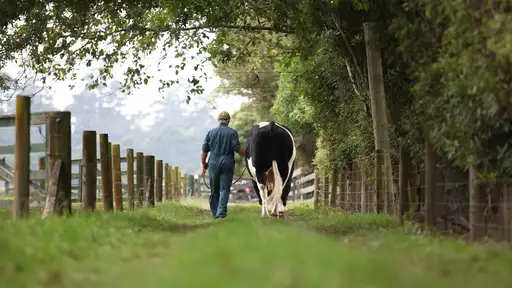Getting the herd back in calf quickly is like baking a ‘fertility cake’, with eight key ingredients listed below contributing to the mix at the right time throughout the year.

High-gBW bull teams, mated to the right cows, breed high-yielding, emissions-efficient replacements.
Heifers that achieve liveweight targets at 15 months will get in-calf and calve faster. Those that achieve targets at 22 months of age are more likely to resume cycling early and conceive quickly as first calvers.
Strive for at least 88% of your cows to calve within the first six weeks of the calving season. This creates more days in milk and more time for cows to recover before mating.
Mature cows should reach a body condition score (BCS) of 5.0 at calving, while first- and second-calvers should aim for a BCS of 5.5. For mating, the target is for cows to lose less than 1 BCS from calving to mating (at mating, 4.5 BCS for first and second calvers, and 4.0 for mixed aged cows).
Healthy cows are more likely to perform well productively and reproductively, need fewer interventions and health treatments, and remain in the herd for longer.
To achieve strong conception rates, aim for 95% of early-calved mature cows to be inseminated within the first three weeks of mating, with short returns kept below 13%.
Proper insemination techniques and semen handling are critical for maximising conception rates. We carefully monitor the reproductive performance of our genetics products and technicians.
Provide one bull per 25 heifers plus a spare, and two teams of one bull per 30 non-pregnant cows plus spares for the milking herd. All bulls should undergo health and fertility testing before use.
For an average sized herd of 450 cows: A 2% increase in 6 week in calf rate, and a 1% decrease in empty rate = $8000 of potential profit.*
Also expect:
- More AB heifer calves.
- More days in milk.
- Fewer service bulls.
- More voluntary culls.
*Based on LIC’s repro calculator





